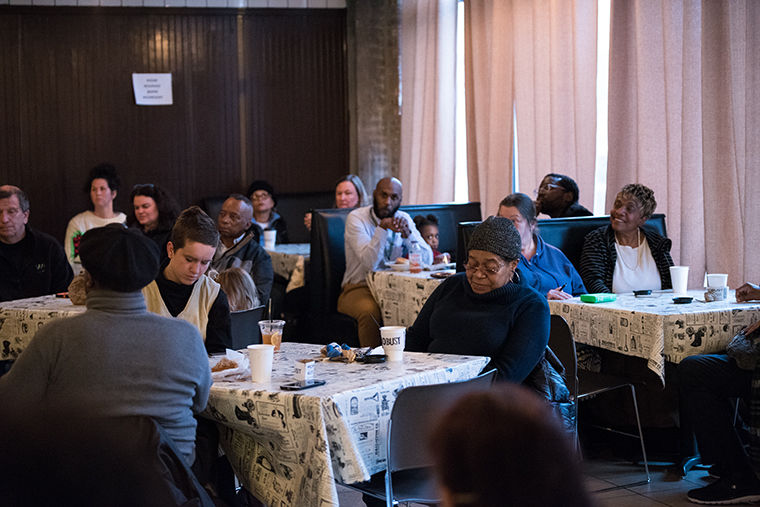Community garden debate sprouts in Woodlawn
April 9, 2018
Two community gardens in Woodlawn face an uncertain future, triggering uneasiness in the surrounding community.
Residents and gardeners were notified March 17 that the 65th and Woodlawn community garden, 6500 S. Woodlawn Ave., and the Kumunda community garden, 6435 S. Kimbark Ave., were to be closed by the local First Presbyterian Church, the landowner of the gardens, according to a March 26 Woodlawn Gardens’ press release.
The gardens provide an area for residents to grow fresh produce along with plots that contribute produce for the church’s food pantry. In response, residents and people representing the gardens created a Change.org petition to keep the gardens open. The petition has received more than 1,800 signatures as of press time.
It would be “devastating” for the community if the gardens were unable to reopen, said Elizabeth Gardner, a 13-year Woodlawn resident and co-founder of the Woodlawn Community Summit who spoke at an April 3 community garden meeting.
“We have relied on [those] garden[s] for many years,” she told The Chronicle.
The church has sent mixed signals about whether the gardens will stay closed or reopen, Gardner said, but residents who planted food in the fall are currently unable to garden on the church’s land.
The First Presbyterian Church did not respond to requests for comment as of press time.
Anyone who gardens on the land pays a $45 fee, Gardner said, which helps pay for tools and keeps the garden self-sustaining.
The gardens also produce at least 1.5 tons of food annually for the First Presbyterian Church’s food pantry, according to Margaret Mass, master gardener and member of the managing committee for the Woodlawn community gardens.
Mass, who lived in Woodlawn from 2004—2016, said she still uses the garden to grow tomatoes, kale, beans and spinach. She is able to grow enough produce at the garden for her and her son year-round, and her freezer is full of leftover produce from the last growing season, she added.
Other crops such as corn, cucumbers, beans, okra and peppers can be found sprouting in the gardens, along with medicinal herbs, according to Mass.
If the gardens were to remain closed, some residents fear Woodlawn would become a food desert with only an Aldi, Walgreens, McDonald’s and a few liquor stores for locals, Mass said. But Aldi is farther away on the southwest corner of the neighborhood and may not be easily accessible to all residents, she added.
“The entrance of a community garden doesn’t necessarily eliminate a food desert, and its exit doesn’t necessarily create a food desert,” said Mari Gallagher, principal of Mari Gallagher Research and Consulting Group, a firm specializing in localized data, strategic information and measurable solutions that popularized the term “food desert,” according to its website.
Along with supplying a space for residents to grow fresh produce, gardens provide additional benefits for the surrounding community, Gallagher said.
These gardens have been used to host weddings, and others have used it to connect with nature and spend time with family, Mass said.
Brian Wildeman, 49, a teacher at the University of Chicago Laboratory Schools, lives across the street from one of the gardens. Four months a year, he can be found at the garden every day growing and tending to his crops.
If the gardens do not reopen, Wildeman said he would move to a house that borders an empty lot with enough green space to create his own community garden.
“[When] the rest of the world is hectic, we can go in there and have that space to relax get back with nature and be with our families,” Mass told The Chronicle. “I came there for the food, then I found my space here.”








